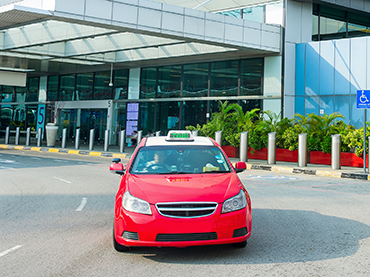Written Reply to Parliamentary Question on Trend of Fare Evasion by Private Hire Car Passengers
04 Oct 2022In Parliament
Mr Melvin Yong Yik Chye asked the Minister for Transport
a. in the past five years, how prevalent is fare evasion among private hire car passengers;
b. whether there has been a rising trend of fare evasion cases; and
c. how easy is it for private hire car drivers to report and seek redress for such cases from LTA.
Reply by Minister for Transport S Iswaran:
1. This response also addresses a related question filed by Mr Don Wee for a subsequent sitting.
2. We take fare evasion cases for taxi and private hire car (PHC) services seriously. Passengers who do not pay their fares affect the livelihoods of taxi and PHC drivers. This is why we have an established process to assist drivers.
3. Taxi and PHC drivers who encounter fare evasion have several ways to seek redress. First, drivers can report fare evasion to taxi or PHC operators, who will attempt to recover the fares on behalf of their drivers. If operators are not successful, cases can be referred to the Land Transport Authority (LTA) for further investigation. Second, drivers can call the police for assistance or drive passengers who refuse to pay to the nearest police station. After lodging a police report, drivers can refer the case directly to LTA for investigation. Drivers can also approach LTA directly.
4. For the past five years from 2017 to 2021, for both taxi and PHC services, LTA investigated a total of 233, 269, 164, 104, and 96 cases of fare evasion respectively – a falling trend. For comparison, the total number of taxi and PHC trips is about 600,000 per day. That means that 0.00005% of all trips, or one in two million trips, have reported fare evasion.
5. PHC cases are only included in this data from 30 October 2020, when the PHC regulatory framework commenced: no PHC cases were investigated in 2020, and 21 PHC cases were investigated in 2021.
6. Cases of fare evasion vary in complexity. For example, where passengers cannot be identified, it will be challenging to track them down to recover the unpaid fares. Even so, from 2017 to 2021, fares were recovered from about six in 10 of all cases investigated.
7. Non-payment of taxi and PHC fares is an offence under the Public Transport Council Act. A person guilty of non-payment can be fined up to $1,000. Repeat offenders can be fined up to $2,000, or jailed for up to six months, or both. From 2017 to 2021, a penalty was imposed in about one in 10 of all cases investigated. No penalties have been imposed for PHC cases thus far.
8. Finally, let me reiterate that LTA stands ready to assist any drivers who come across fare evasion.
Back
a. in the past five years, how prevalent is fare evasion among private hire car passengers;
b. whether there has been a rising trend of fare evasion cases; and
c. how easy is it for private hire car drivers to report and seek redress for such cases from LTA.
Reply by Minister for Transport S Iswaran:
1. This response also addresses a related question filed by Mr Don Wee for a subsequent sitting.
2. We take fare evasion cases for taxi and private hire car (PHC) services seriously. Passengers who do not pay their fares affect the livelihoods of taxi and PHC drivers. This is why we have an established process to assist drivers.
3. Taxi and PHC drivers who encounter fare evasion have several ways to seek redress. First, drivers can report fare evasion to taxi or PHC operators, who will attempt to recover the fares on behalf of their drivers. If operators are not successful, cases can be referred to the Land Transport Authority (LTA) for further investigation. Second, drivers can call the police for assistance or drive passengers who refuse to pay to the nearest police station. After lodging a police report, drivers can refer the case directly to LTA for investigation. Drivers can also approach LTA directly.
4. For the past five years from 2017 to 2021, for both taxi and PHC services, LTA investigated a total of 233, 269, 164, 104, and 96 cases of fare evasion respectively – a falling trend. For comparison, the total number of taxi and PHC trips is about 600,000 per day. That means that 0.00005% of all trips, or one in two million trips, have reported fare evasion.
5. PHC cases are only included in this data from 30 October 2020, when the PHC regulatory framework commenced: no PHC cases were investigated in 2020, and 21 PHC cases were investigated in 2021.
6. Cases of fare evasion vary in complexity. For example, where passengers cannot be identified, it will be challenging to track them down to recover the unpaid fares. Even so, from 2017 to 2021, fares were recovered from about six in 10 of all cases investigated.
7. Non-payment of taxi and PHC fares is an offence under the Public Transport Council Act. A person guilty of non-payment can be fined up to $1,000. Repeat offenders can be fined up to $2,000, or jailed for up to six months, or both. From 2017 to 2021, a penalty was imposed in about one in 10 of all cases investigated. No penalties have been imposed for PHC cases thus far.
8. Finally, let me reiterate that LTA stands ready to assist any drivers who come across fare evasion.
